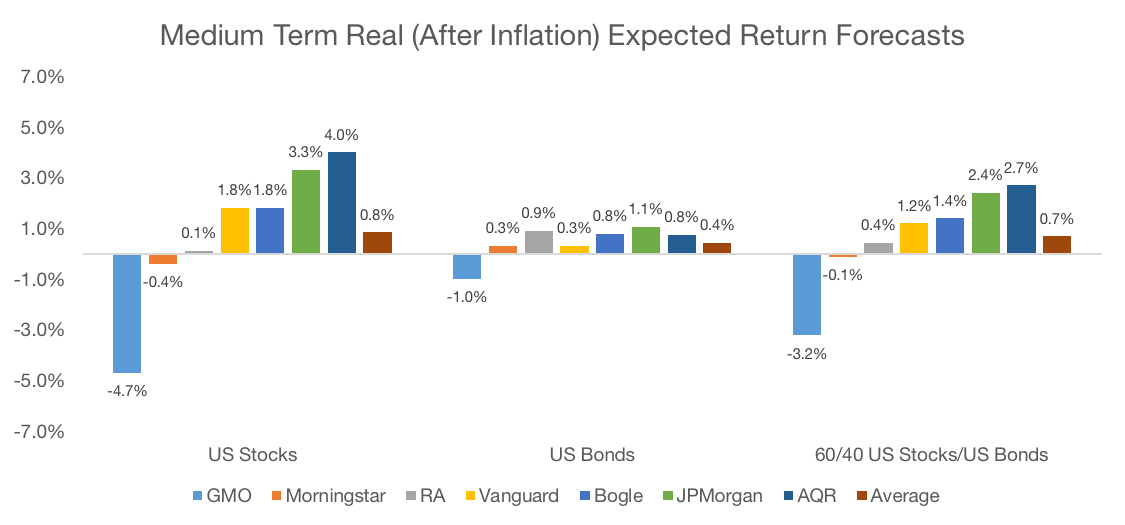Amazon’s 2017 letter to shareholders was released a couple days ago. It’s a regular read for me the past few years.
Jeff Bezos’s message hasn’t changed much since the first letter in 1997. His long-term process-oriented approach and willingness to fail is rare in the business world. It also translates well to investing.
This year, Bezos shares a few things he’s learned about maintaining standards in the company. This one stood out:
What do you need to achieve high standards in a particular domain area? First, you have to be able to recognize what good looks like in that domain. Second, you must have realistic expectations for how hard it should be (how much work it will take) to achieve that result – the scope…
A close friend recently decided to learn to do a perfect free-standing handstand. No leaning against a wall. Not for just a few seconds. Instagram good. She decided to start her journey by taking a handstand workshop at her yoga studio. She then practiced for a while but wasn’t getting the results she wanted. So, she hired a handstand coach. Yes, I know what you’re thinking, but evidently this is an actual thing that exists. In the very first lesson, the coach gave her some wonderful advice. “Most people,” he said, “think that if they work hard, they should be able to master a handstand in about two weeks. The reality is that it takes about six months of daily practice. If you think you should be able to do it in two weeks, you’re just going to end up quitting.” Unrealistic beliefs on scope – often hidden and undiscussed – kill high standards. To achieve high standards yourself or as part of a team, you need to form and proactively communicate realistic beliefs about how hard something is going to be – something this coach understood well.
Be it cartwheels or something else, we often get the scope wrong. We think things will happen much sooner than what’s possible. We underestimate the work and effort involved. And if it’s not the scope, then it’s unrealistic expectations.
Investing is not immune to this problem.
This happens constantly around tech. History would suggest that the investor optimism around tech is blind to scope. Massive progress or upheaval is always “right around the corner”. Really, it’s several years (sometimes decades) and multiple levels of innovation away. But the optimism is reflected in stock prices. Investors are consistently good at mispricing scope into stock prices.
Here’s a different example.
A big mistake new investors make, especially if they start during a period where the market is doing well, is to think that the market always delivers up great returns, and because of that, investing is easy. At that moment, expectations are governed by an extremely limited experience in investing. The market eventually corrects that notion, often painfully.
Whether the lesson taught is the lesson learned is the question. If they’re doing their homework and paying attention, they learn that markets go through cycles. Easy doesn’t describe it. Good returns are the result of good strategies that take time, good behavior, effort, work.
First, you have to be able to recognize what good looks like in that domain. Second, you must have realistic expectations for how hard it should be (how much work it will take) to achieve that result – the scope.
What are good returns?
Well, historically U.S. stocks earn a lumpy average return of 9% to 10% annually.
Since 2009, U.S. stocks earned annual returns in the 14% to 15% range.
Math would suggest that is unsustainable, which is why most expected return forecasts are so low for the next five to ten years. Somewhere around 3% with inflation seems to be the rough consensus.

Source: Newfound Research
If you’re new to this and expect double-digit stock returns going forward, that’s a bit unrealistic.
How much effort is needed to earn that 3%?
Well, investing has never been easier or harder. A minimal amount of effort – actual work – can be applied to earn that 3% using index funds.
But that’s only half the battle. The emotional or psychological effort needed to stick with something projected to only earn 3% will be immensely more difficult.
And if you think you can do better than 3%, then things get even harder. To do any better than that requires more work (bigger time commitment), certainly more skill, some luck, better behavior, and less diversification (more concentration).
That is why aligning realistic expectations with scope is so important as you invest.
Source:
Amazon 2017 Letter to Shareholders
Last Call
- How Good Do You Want To Be? – R. Holiday
- Casualties of Your Own Success – M. Housel
- Forecasts? I Haven’t Got a Clue – Psy-Fi Blog
- The What-Ifs – Irrelevant Investor
- How Marty Whitman Beat the Market – Barron’s
- Dear Fellow Shareholders: 30 Years of Wit, Wisdom, and Value Investing Insights – M. Whitman
- How Economies Could Insure Themselves Against the Bad Times – R. Shiller
- Whirlwinds of Speculation (via 1931) – The Atlantic
- We’re Bad at Evaluating Risk. How Doctors Can Help. – NY Times
- How City Birds Evolved to be Smarter Than Rural Birds – Aeon
- What The World’s Most Famous Amateur Can Teach Pro Runners – Deadspin
- Style is an Algorithm – Racked
